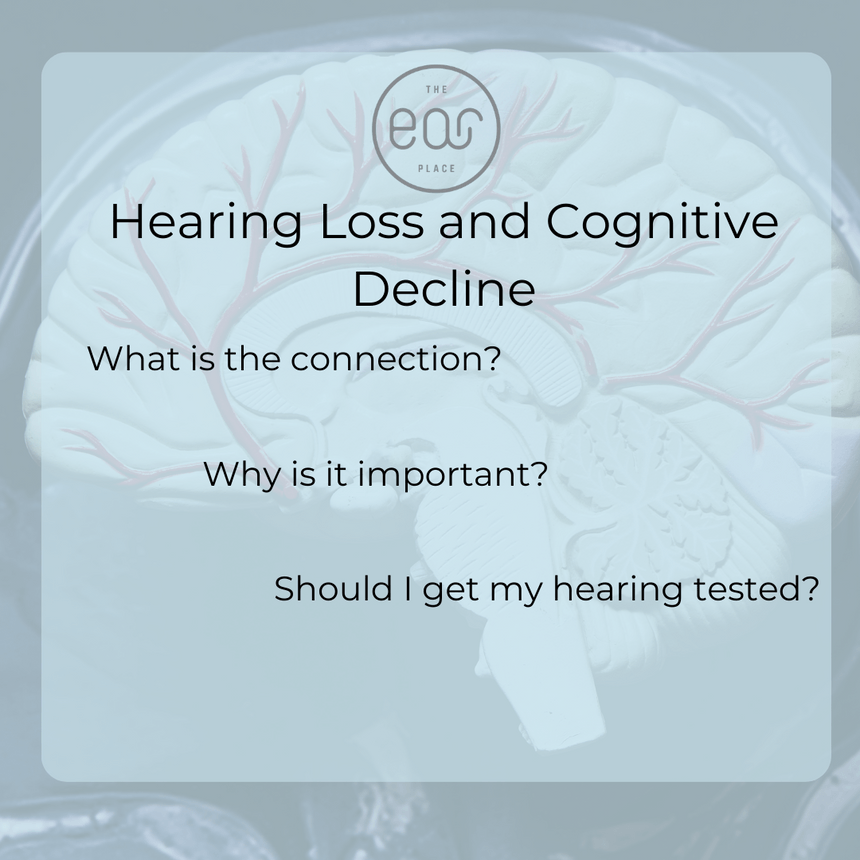Here And Now
Exploring the Connection Between Cognitive Decline and Hearing Loss

In the intricate web of human health, the links between various bodily functions are often surprising and profound. One such connection that has gained significant attention in recent years is the association between cognitive decline and hearing loss. As our understanding of the human brain and its intricate functioning expands, researchers are uncovering compelling evidence suggesting that the health of our ears may play a pivotal role in the health of our minds.
Studies have consistently shown a correlation between hearing loss and cognitive decline, with many researchers now positing a causal relationship. The link between the two can be explained through various mechanisms, shedding light on the complex interplay between auditory perception and cognitive function.
1. Cognitive Load and Social Isolation.
Hearing impairment can increase the cognitive load on an individual. Struggling to hear and comprehend speech in noisy environments forces the brain to work harder, diverting cognitive resources away from other tasks.
Social isolation, often associated with hearing loss, has been identified as a risk factor for cognitive decline. The reduced social engagement may contribute to a lack of cognitive stimulation, potentially accelerating cognitive aging.
2. Brain Atrophy.
The brain is a remarkably adaptable organ, and sensory input, including auditory stimuli, plays a crucial role in maintaining its structure. Auditory deprivation, as seen in hearing loss, has been linked to accelerated brain atrophy, particularly in areas associated with memory and cognitive function.
3. Common Underlying Pathways.
Both hearing loss and cognitive decline have been linked to common underlying pathways, such as cardiovascular health. Conditions like hypertension and atherosclerosis, which impact blood flow, have been implicated in both hearing impairment and cognitive decline.
4. Early Warning Sign.
Some researchers propose that hearing loss may serve as an early warning sign of cognitive decline. Changes in auditory processing may precede noticeable cognitive symptoms, providing an opportunity for early intervention.
Recognising the connection between cognitive decline and hearing loss opens avenues for proactive healthcare strategies.
1. Hearing Health Screenings.
Routine hearing health screenings, especially in older adults, can help identify and address hearing loss early on. Early intervention with hearing aids or other assistive devices may mitigate the cognitive impact.
2. Integrated Healthcare Approach.
An integrated healthcare approach that considers both auditory and cognitive health can enhance overall well-being. Collaboration between audiologists, neurologists, and other healthcare professionals can provide a more comprehensive understanding of a patient's health.
3. Cognitive Stimulation.
Maintaining an active and socially engaged lifestyle can contribute to cognitive resilience. Encouraging activities that stimulate the mind, such as social interactions, cognitive games, and learning new skills, may help offset the impact of hearing loss.
The connection between cognitive decline and hearing loss is a multifaceted and evolving area of research. As our understanding deepens, healthcare strategies that address both auditory and cognitive health can offer a more holistic approach to aging and overall well-being. By acknowledging and acting upon this relationship, individuals may be better equipped to preserve not only their hearing but also the cognitive vitality that is crucial for a fulfilling and healthy life.